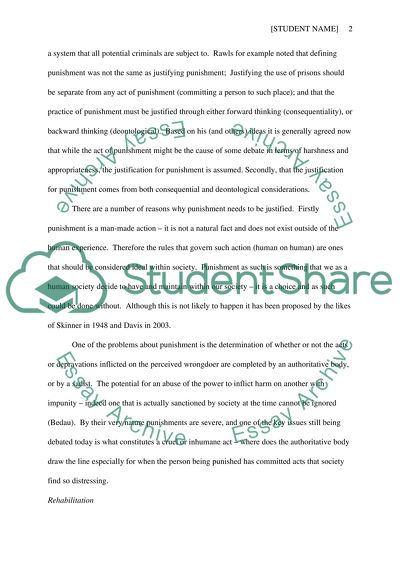Cite this document
(“A Consideration of Prison Ethics: Punishment vs. Rehabilitation Essay”, n.d.)
Retrieved from https://studentshare.org/philosophy/1430803-ethics-of-prison-rehabilitation
Retrieved from https://studentshare.org/philosophy/1430803-ethics-of-prison-rehabilitation
(A Consideration of Prison Ethics: Punishment Vs. Rehabilitation Essay)
https://studentshare.org/philosophy/1430803-ethics-of-prison-rehabilitation.
https://studentshare.org/philosophy/1430803-ethics-of-prison-rehabilitation.
“A Consideration of Prison Ethics: Punishment Vs. Rehabilitation Essay”, n.d. https://studentshare.org/philosophy/1430803-ethics-of-prison-rehabilitation.


